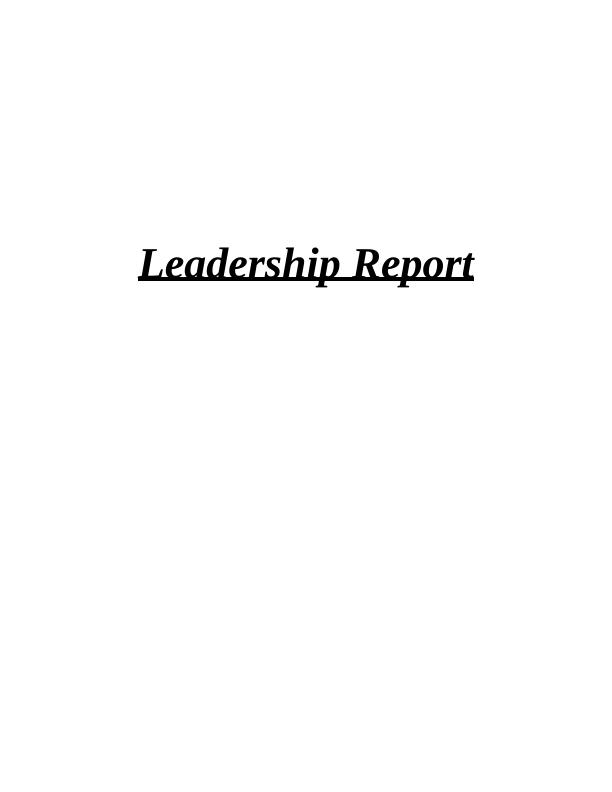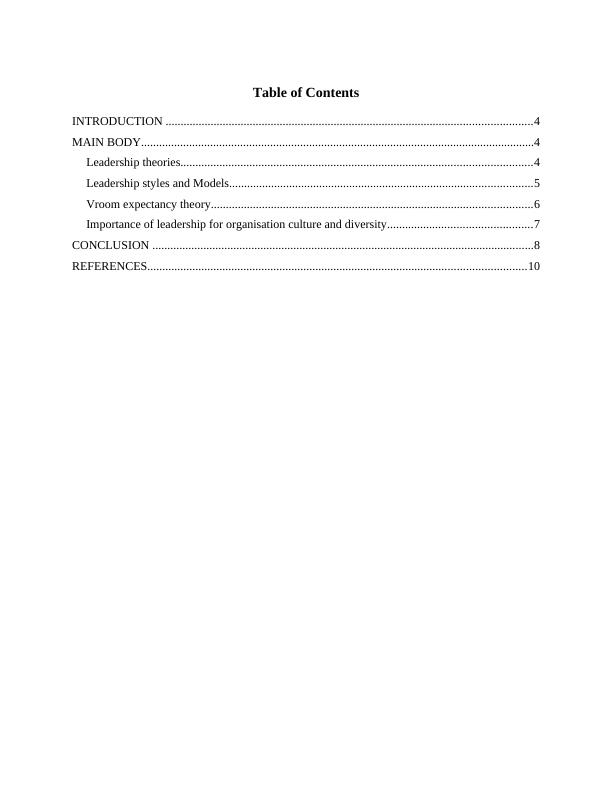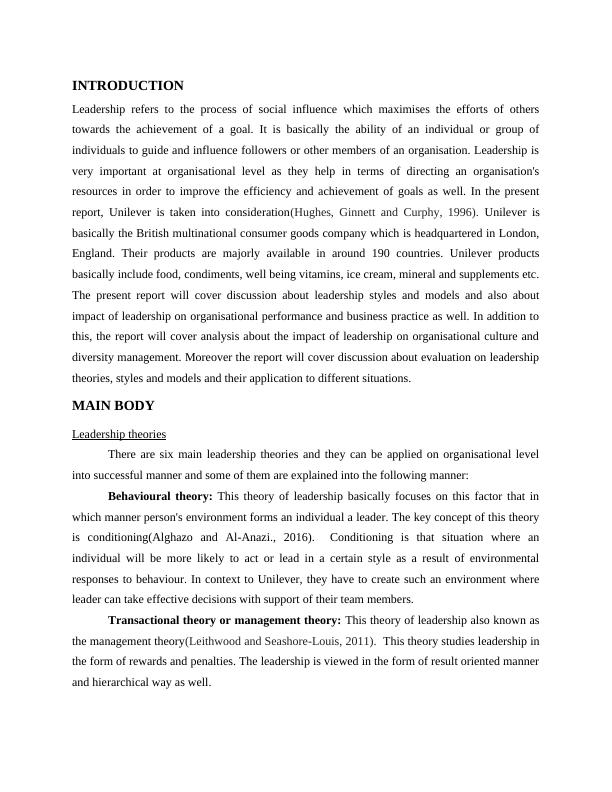Importance of Leadership for Organisational Culture and Diversity: A Case Study of Unilever
10 Pages2447 Words256 Views
Added on 2023-06-15
About This Document
This report discusses the importance of leadership for organisational culture and diversity management, using Unilever as a case study. It covers different leadership theories, styles, and models and their application to Unilever. The report also analyses the impact of leadership on Unilever's performance and success, and the relevance of the Vroom expectancy theory. It concludes that leadership is crucial for an organisation's success and diversification.
Importance of Leadership for Organisational Culture and Diversity: A Case Study of Unilever
Added on 2023-06-15
ShareRelated Documents
End of preview
Want to access all the pages? Upload your documents or become a member.
Leadership Report: Styles, Models, Theories and Impact on Organisational Culture and Diversity
|8
|2458
|226
Importance of Leadership for Organisational Culture and Diversity
|11
|747
|206
Leadership Report
|7
|2388
|27
Leadership Report: Theories, Styles, Models, and Impacts on Organisational Culture and Diversity
|9
|2453
|98
Leadership Style and Approaches
|9
|2456
|37
Leadership Theories at different Wokplace Situations : Report
|5
|1218
|155



